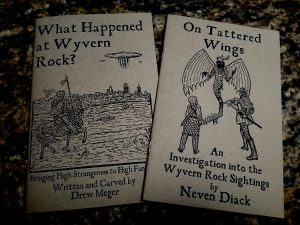
D&D (Jon Mollison): fter nearly forty years of tabletop gaming, it can get a little hard to recapture the fresh weirdness of Gygaxian fantasy. Particularly true in this day and age when the majority of D&D creatives believe that the height of creativity is something along the lines of, “just like before, only WOMEN!” or “just like half-orcs, but half-demons/half-dragons/half-drow/half-kitchen-sink”. So it was with some relish that a friend pointed out What Happened at Wyvern Rock.
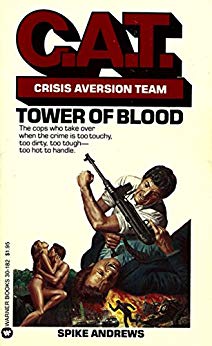
Genre Ponderings (Wasteland & Sky): Not too long ago I wrote a review of two different adventure books. This was done to emphasize the small ways men’s adventure stories had changed over the years. The first was a Dirty Harry-inspired ’70s romp that leaned on hopelessness for drama, and the other was a post-apocalyptic trek where misery lurked under the surface as an inescapable reality. The creeping doom had been slowly consuming adventure fiction for a while.
RPG (Hackslash Master): Fantastic creatures are stories and manifestations of ideas we have that represent our concerns or fears. I will list a few to illustrate my point. Werewolves are about fears of alcoholic behavior, giants are about our experiences of adults and our fears of them as children. a lich is a monster who denies your ability to achieve autonomy over your life, because the men before you refuse to die and make way for their children, vampires represent our fears and concerns over rape and death, zombies represent our fears of rampant consumerism and a loss of identity.
Writers (Karavansara): Clive Cussler was a man that wrote book about sea adventure, and used the proceeds to have real-life sea adventures – and to collect classic cars. He projected a certain joy de vivre that made me like him even when I staggered to finish Valhalla on the third attempt. And later I found out I liked his other series much better – and I absolutely loved his memoirs about treasure hunting and relic salvaging.
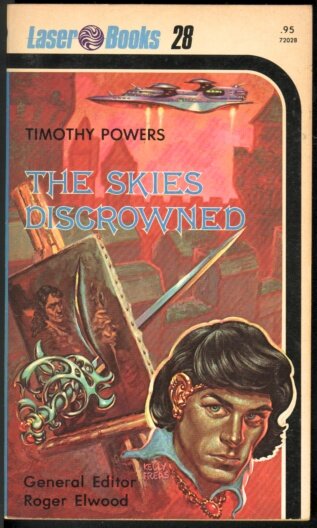
Fiction (DMR Books): As it so happens, Mr. Powers’ first novel in 1976 was a planetary swashbuckler titled The Skies Discrowned. He hammered it out for Laser Books and got his first paycheck as an author. Tim quit his job at the pizza joint and has never worked a “real job” since. The Skies Discrowned is solid, but it does show the marks of being a first novel and of being written in some haste. Here’s Tim remembering the writing of that novel.

Fiction (Dark Worlds Quarterly): A girl is killed on the links of Harrison, NJ’s finest country club, her body covered in scratches and her head battered to a ruin. De Grandin and Trowbridge examine the body as well as several others, a boy who claims he was also attacked–by a gorilla in a tuxedo, and a young man named Manly who has a bullet wound in his shoulder. De Grandin puts all the pieces together when he connects the events with an escape lunatic, Beneckendorff, who had turned children into ape-like monsters during the War.
Horror Fiction (MarzAat): “The Horror-Horn”, E. F. Benson, 1922. The story opens with the narrator on winter holiday at Swiss mountain resort near Mt. Alhubel. (This may or may not be a real place – I definitely see a Mt. Alphhubel in Switzerland but no Alhubel in a web search). He is there with his cousin Professor Ingram, an expert in physiology and a mountain climber. In an English newspaper, Ingram reads a report about the yeti (though that name is not used).
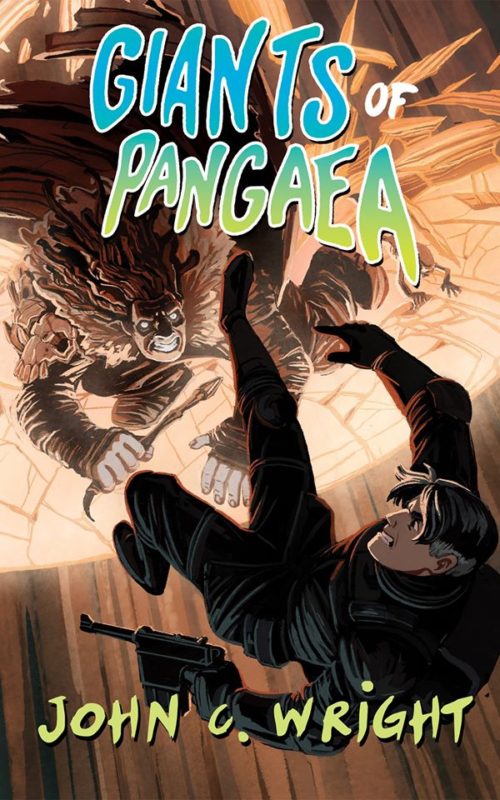
New Release (John C. Wright): Colonel Preston Lost didn’t think of himself as reckless. He believed in preparation, proper equipment, and patience in stalking the prey. But, in reality, he was not a cautious man. Having followed a spaceship into the black storm clouds above the Bermuda Triangle, he flew through a time portal to the end of days, and crash-landed on Pangaea Ultima with few supplies and no way of returning home. Lost is a man of many talents, though, and anything should be possible for him. Having found himself in a world at war, he decides to embark on a journey to set things right.
RPG (Monsters & Manuals): Neutral Evil is the easiest to explain in this way. Here is a character who has no interest in the furtherance of anything beyond himself, and especially not in the grand conflict between Law and Chaos which permeates the multiverse. He is completely self-centred and devoted to his own pleasure and success. That this can turn to evil is obvious. The more difficult questions are where Lawful Neutrality and Chaotic Neutrality turn to evil. Lawful Neutrality – the absolute insistence on the letter of the law and the preservation of order – can clearly have negative consequences where it results in harsh or unmerciful application.
Appendix N (Brain Leakage): But I think after reading cavegirl’s post, I have what I’d call my “5-Minute Knife Fight” version of Appendix N: pre-supposing a brand new player—one who has no prior knowledge or experience of D&D, fantasy, or roleplaying games—what three books would I give him to teach him about D&D’s underlying concepts to help him understand and run a game quickly?
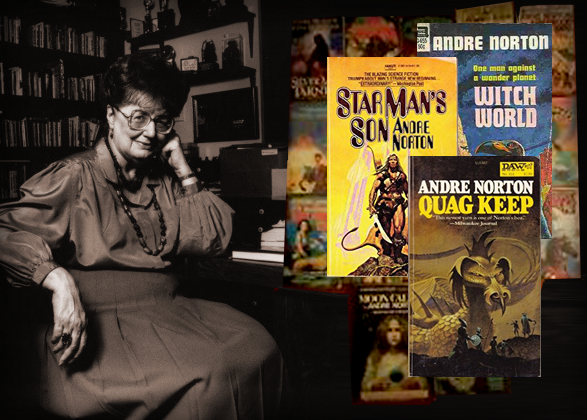
Fiction (Goodman Games): Born as Alice Mary Norton in 1912, Norton started writing while she was still in high school in Cleveland, Ohio. In fact, she completed her first novel while still attending high school, though it was not published until later in 1938. Wishing to pursue writing as a career, in 1934 she had her name legally changed to Andre Alice Norton, and adopted several male-sounding pen names so as to prevent her gender from becoming an obstacle to sales in the first market she wrote for: young boys literature.
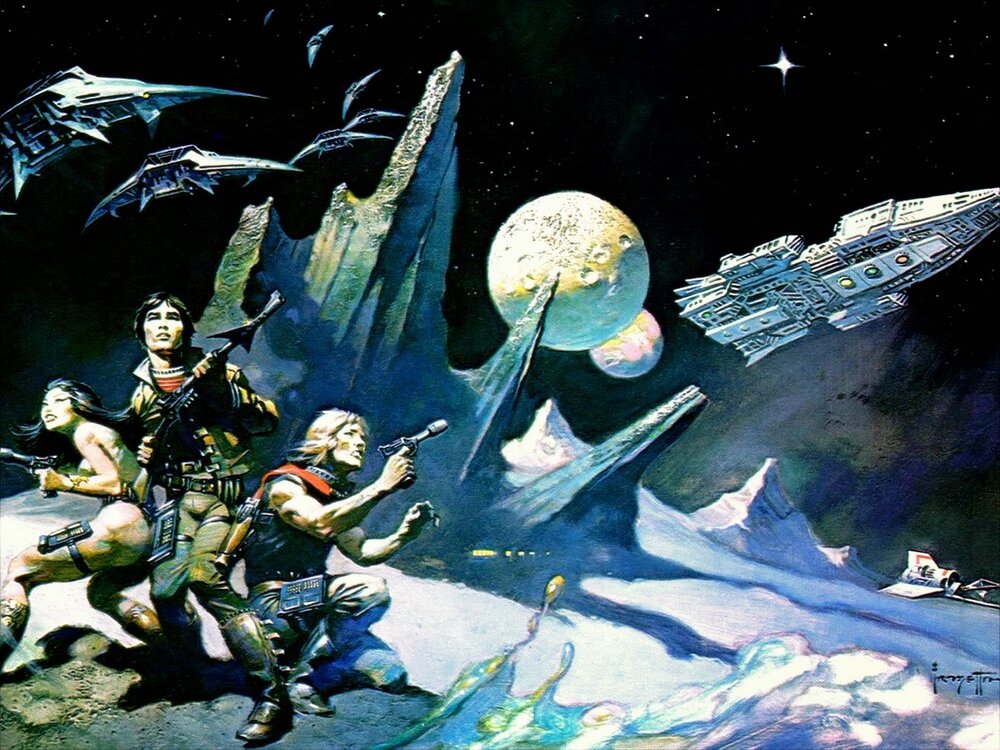
Art (DMR Books): Frazetta had been approached by George Lucas to do concept art for Star Wars. Frank, who made several house payments by way of his movie posters for Hollywood in the the early ‘60s, wanted the same deal he was getting from every other client by the mid-’70s: creative freedom and ownership of the originals. Lucas wouldn’t go for it. His loss. The producers of Battlestar Galactica were more accommodating. As Frank put it in 2001.
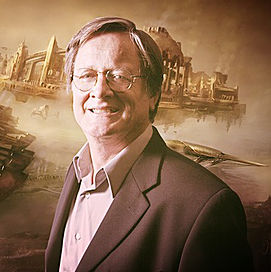
Fiction (Patheos): This is why we invited science fiction and fantasy legend Tim Powers to be one of our keynote speakers at Trying to Say God. Powers has won the World Fantasy Award twice for his novels Declare and Last Call. Disney optioned his book On Stranger Tides for a Pirates of the Caribbean movie. (I recommend you skip the movie and read the book.) His novel The Anubis Gates is one of the seminal works of the sub-genre now known as “steampunk,” sci-fi narratives marked by the use of 19th century fashion and technology–steam power–in anachronistic settings. Along with K.W. Jeter and James Blaylock, Powers is considered one of Steampunk’s founding fathers.
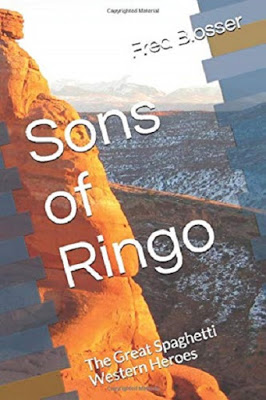
Fiction (Rough Edges): You won’t find a better examination of the genre than Fred Blosser’s new book SONS OF RINGO: THE GREAT SPAGHETTI WESTERN HEROES. Blosser knows these movies very well and probably has seen more of them than anyone else I know, and he writes about them extremely well, discussing the actors, writers, and directors who made them and tracing the evolution of the genre over the years of its popularity. What you get is a very readable volume that’s both informative and entertaining.
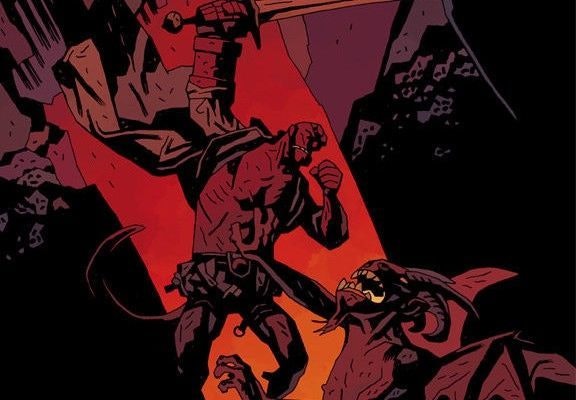
Comic Books (Inverse.com): If you’re a comic book writer working today, the ultimate goal is to see your creations brought to life in a big-budget movie with celebrities in skin-tight leather suits
Mike Mignola has lived that dream. The prolific artist and writer created Hellboy in 1993 for Dark Horse Comics (DC passed on his pitch) and has since spawned an entire “Mignolaverse” of connected superheroes and villains, along with three movies (two from Guillermo del Toro starring Ron Perlman and a third featuring David Harbour as the Hell-spawned anti-hero) plus multiple animated films, video games, and even a reference on The Simpsons.
Thanks for the link!
Damn. Clive Cussler died. How did I miss that when it happened?
When I was in Middle School and High School, I used to devour his books. They may have been the best example of 80s through 90s (and technically beyond) of Pulp still being found on bestseller lists.